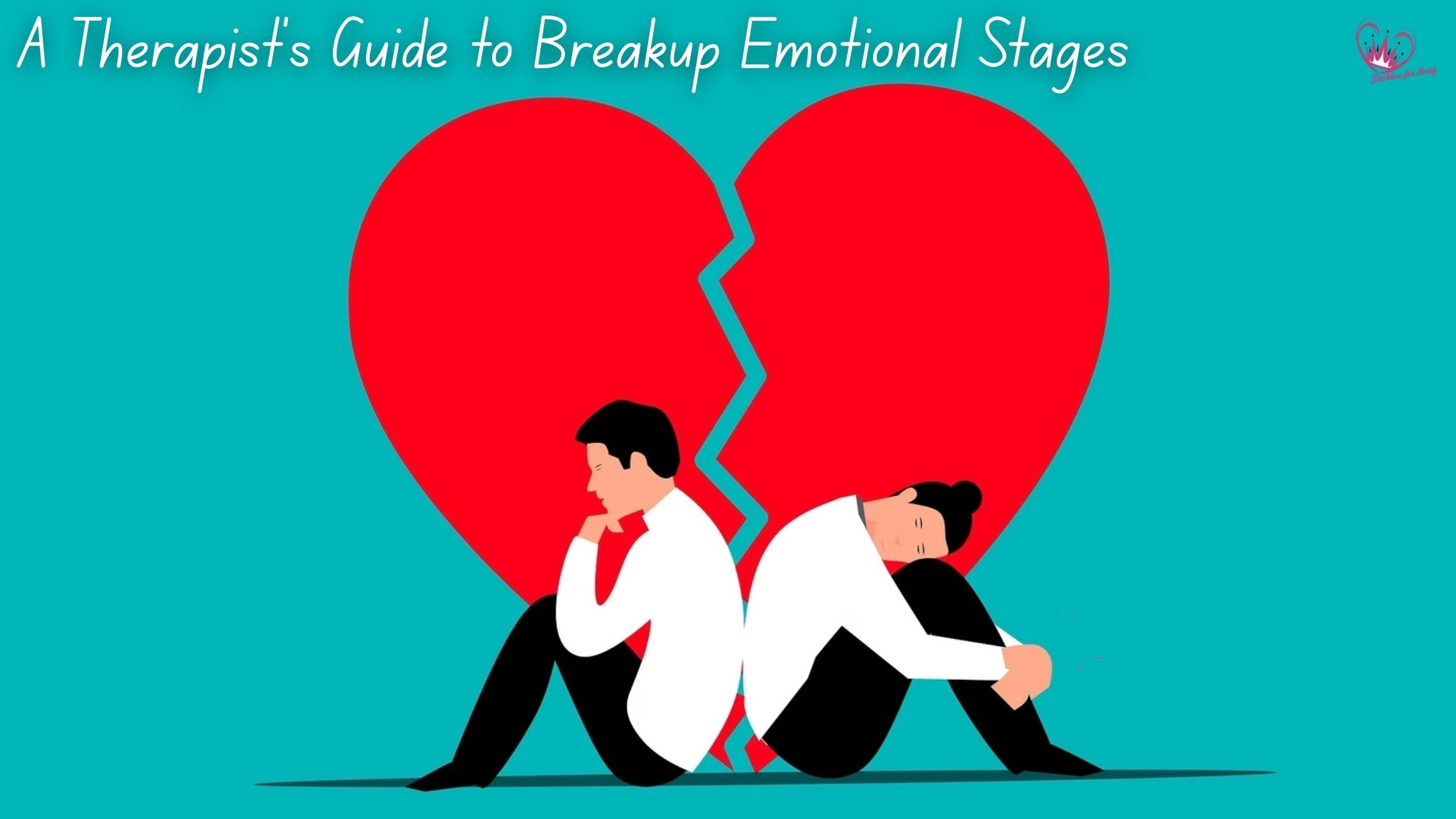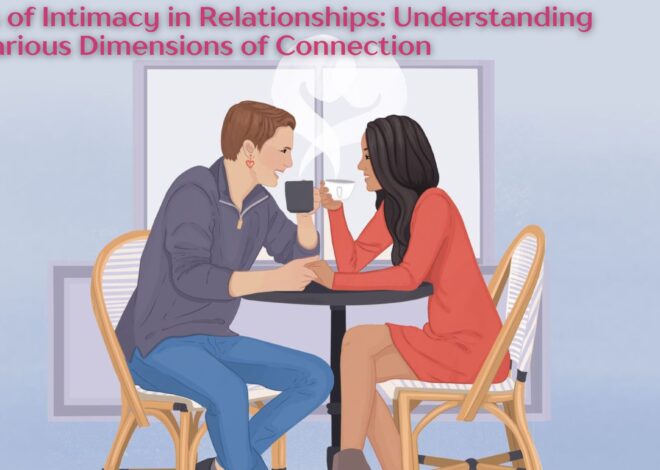
A Therapist’s Guide to Breakup Emotional Stages
Breaking up is one of the most painful experiences of life, a raw and often disorientation journey through the landscape of loss. As a physician, I have the privilege of guiding countless persons through this difficult procedure, and I have understood that while every breakup is unique, the emotional phase that is remarkably consistent. This guide is designed to provide you a roadmap of stages that provide insight, combat strategies, and you get emotional upheaval -rich navigating and eventually get treatment.
Stage 1: Shock and Denial 🤯
The first phase of the breakup is often characterized by the intensive sense of shock and refusal. This is the moment when the reality of what has happened has not been fully registered. You can feel numb, as if you are watching a film of your life instead of living it. Your mind may refuse to accept the truth, such as “it may not be,” or “we’ll come back together; this is just a temporary battle.”
This phase is a brain method to protect yourself from heavy influx of pain. The initial shock acts as a buffer, which prevents you from sinking completely from the emotional weight of the condition. The refusal provides uniform objective, allowing you to process information in small, managed doses.
What to Expect:
- Emotional numbness: You cannot feel much in the beginning. It is a common protective mechanism.
- Thoughts of hope: You can hold yourself on false hope, start the conversation again, or look for signs that the breakup is not final.
- Physical symptoms: Shock may appear physically. You may experience loss of appetite, sleep disturbances, or a common sense of disorientation.
- Obsessive repetition: Your mind will probably be stuck on the details, repeating the breakup interaction, trying to find a different result.
Coping Strategies:
- Accept the pain: Even if you cannot feel it completely, accept that this is a painful phenomenon. Tell yourself, “It hurts, and it’s okay to feel like this.”
- Avoid grand decisions: This is not the time to change a major life. Do not leave your job, go to a new city, or get a rebound haircut yet. Wait until the initial fog is lift.
- Bend on your support system: Talk to a reliable friend or family member. Just what happened orally can help bring it into reality and start processing.
- Practice Mindfulness: Pay attention to the present moment. If your mind begins to spiral into “what ifs”, then slowly redeem your attention to your breath or physical sensations.
Stage 2: Pain and Bargaining 💔
Once the initial shock is closed, the entire weight of the loss becomes hit. It is a phase of pain, and it is often the most difficult. It is a period of deep sadness, sorrow and emotional upheaval. Numbness gives a way to an edge of emotions: sadness, anger, confusion and loneliness.
It is associated with pain. This is the ultimate effort of the mind to achieve control and undo what has been done. You can imagine yourself what you can do differently to save the relationship. You may think, “If only I fill in more [empty]],” or “I will change, just give me another chance.” You can try to contact your former, promise to separate, or expect to persuade them to rethink.
What to Expect:
- Intensive sadness: Rona mantra, a heavy feeling in your chest, and feeling of despair is common.
- Anger and defects: You can feel angry in your east, or situation in your east. To blame one person or another and make an understanding of pain is a common way.
- Passionate thoughts: You will probably think of yourself, your former, shared memories and the future you lost.
- Behavior of bargaining: Arriving to your east, arguing, making promises, or trying to manipulate them in a position to get them back.
Coping Strategies:
- Feel feelings: Do not try to suppress your pain. Find a safe place to cry, scream, or simply sit with your sadness. Pressing emotions only enhances the healing process.
- Journaling: Writing your thoughts and feelings can be incredibly medical. It helps to external pain and organizes chaos in your brain.
- Set the boundaries: Limit the contact with your east or cut it completely. Each lesson, call, or social media check-in resumes the cycle of hope and pain.
- Have mercy on yourself: This is not the time of self-criticism. Remind yourself that you are human and what you are going through is incredibly difficult. You are not weak to feel like this.
Stage 3: Anger and Resentment 😡
As deep sadness starts decreasing, it often changes with anger and resentment. This is an essential and powerful phase of the mourning process. Anger is an energetic feeling, and it can be a protective shield against vulnerability and sadness that lies down. It gives you the feeling of the agency and helps you get away from the feeling of powerlessness.
At this stage, you may feel resentful to your former, blaming them for the pain they have done. You may feel angry at yourself not to see signs or to invest so much in a relationship. This can be a catalyst for anger change, pushing you to make yourself vocal and to re -achieve yourself.
What to Expect:
- Irritability: You can easily angry or throw out others.
- Dosha: You can highlight all the defects in your former defects and methods that they do injustice to you.
- Honorist thoughts: You can regret your previous decision or want to hurt them in some way.
- Receiving your story: This is the stage where you start telling “breakup story” from your perspective, often focus on your earlier shortcomings.
Coping Strategies:
- Producer outlet for anger: Channel your anger in healthy activities. Go for a run, hit a punching bag, take a kickboxing class, or attach to high-western workouts.
- Vent a friend: Talk to a trusted friend who will listen without a decision. Orally expressing your anger can help release it.
- Identify the source: Ask yourself, “What is this anger really?” Is it about a breakup, or a deep sense of betrayal, abandonment, or disqualification?
- Use anger as an inspiration: Let your anger be fuel for positive changes. Use it to work on yourself, chase a new hobby, or meet a goal that you are turning off.
Stage 4: Depression and Reflection 🌧️
After the intense feelings of pain and anger, a cool feeling of depression and reflection is often set. This is the period of emotional exhaustion, where the entire weight of the damage is again submerged, but without acute emotional high and climbing of the previous stages. It can feel like a deep, persistent sadness or emptiness.
This phase is important because it is also a time of reflection. As the emotional storm decreases, you can start looking at the relationship more fairly. You not only start mourning your partner’s loss, but also the loss of your shared future, your identity as a couple, and the dreams you had. This is the phase where true processing begins.
What to Expect:
- Constant grief: a lower-grain but a widespread feeling of sadness, emptiness, or loneliness.
- Lack of inspiration: You can feel dull and are very little interested in activities you enjoyed once.
- Social return: You can separate yourself from friends and family.
- Objective Reflection: You can start looking at both good and bad in the relationship, and your role in its dynamics.
Coping Strategies:
- Practice self-care: Force yourself to do things that nourish your body and mind. Eat healthy food, get enough sleep, and spend time in nature. Even a small walking journey can help.
- Seek professional help: If the feelings of depression are heavy or frequent, it is important to seek the help of a physician or counselor. They can provide equipment and assistance to navigate this difficult time.
- The magazine and reflect: Use this time to process the relationship. What did you learn? What were the red flags you remember? What do you want in future relationship?
- Connect yourself again: Find your identity again outside the relationship. What is your hobby? What do you make, you? This is a time to make your relationship with you again.
Stage 5: Acceptance and Moving On 🌱
The final phase is approval and moving forward. This does not mean that you are suddenly happy or that you have forgotten the person. This means that you have come to the place of peace with the reality of the situation. Pain is no longer dominating every thought, and you can see the relationship with clarity, gratitude, and a forward -looking perspective.
In this stage, you begin to rebuild your life. You are not just alive; You are starting to flourish. You invest in new friendship, hobbies and personal goals. Emotional marks remain, but they no longer define you. They become part of your story, a will of your flexibility.
What to Expect:
- A sense of peace: Emotional turmoil decreases. You can think about your former without acute pain or anger.
- Hope for the future: You feel a fresh renewed hope and optimism about what ahead.
- Re -association with life: You start enjoying social events, hobbies and other activities again.
- Newfound clarity: You have a clear understanding of what went wrong and what you want in future partner.
Coping Strategies:
- Embrace the future: Start setting new personal and professional goals. This can be simple as a new skill learning or planning a trip.
- Focus on gratitude: Be grateful to those lessons that you have taught for the relationship and the person you have become.
- Open yourself to new connections: Do not participate in a new relationship, but be open to create new friendship and connection.
- Remember your flexibility: Look at the journey you are on. Remind yourself of your strength and how far you have come.
A Final Word from a Therapist
The path through a breakup is not a straight line. You can take yourself forward and back between the steps. It is not a race, and there is no prescribed timeline for treatment. Be patient and become kind with yourself. Allow yourself to feel what you need to feel, and rely on that with time, self-care, and a strong support system, you will be strong, intelligent and ready to embrace a new chapter. Remember, it will also pass.



